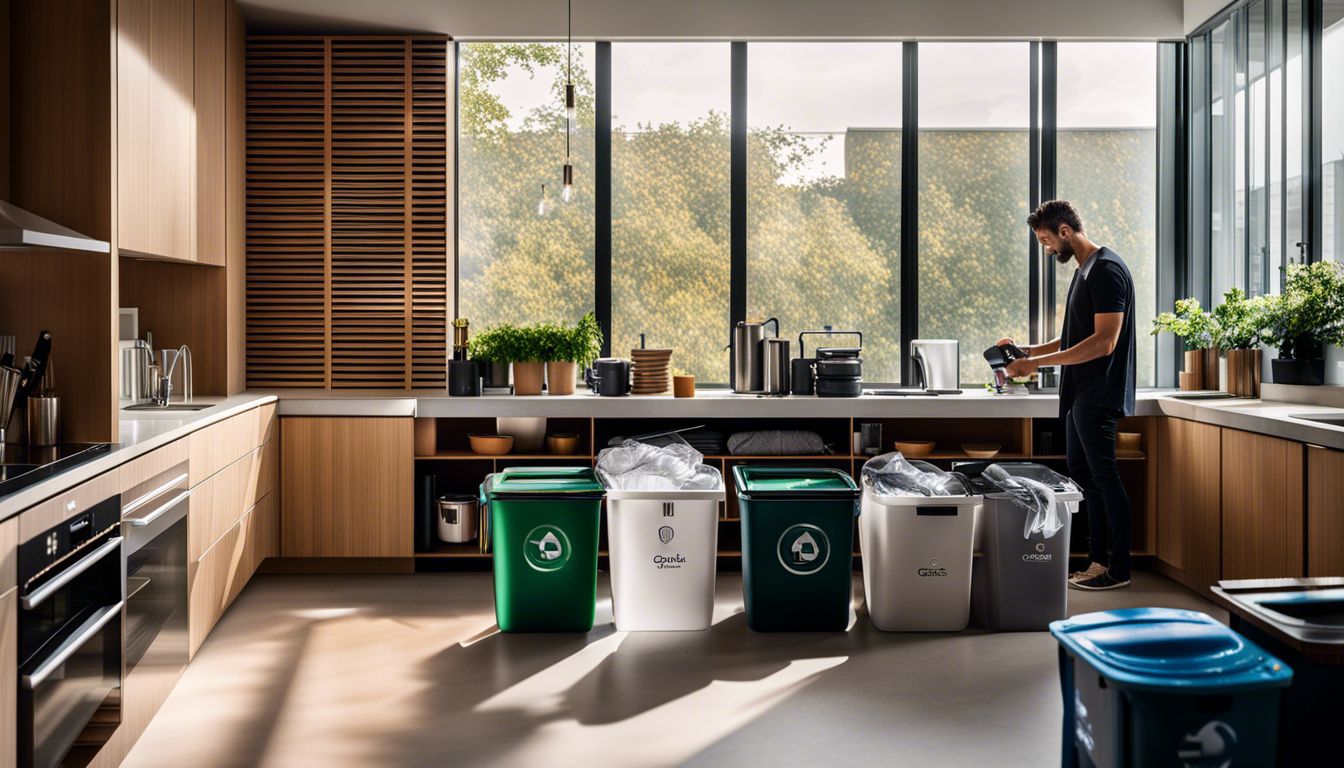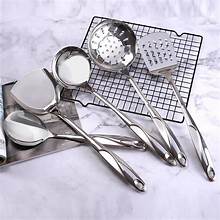Blog
Eco-Conscious Kitchen Tools for a Greener Lifestyle
In recent years, the importance of sustainability has become increasingly evident, and many people are looking for ways to reduce their environmental impact. One effective approach is to make mindful choices in the kitchen. By opting for eco-conscious kitchen tools, you can not only enhance your cooking experience but also contribute to a healthier planet. This guide will explore various eco-friendly kitchen tools that promote a greener lifestyle, along with tips on how to integrate them into your daily cooking routine.
1. The Importance of Eco-Conscious Choices
Before diving into specific tools, it’s essential to understand why eco-conscious choices matter:
1.1. Reducing Waste
Many traditional kitchen tools are made from plastic and other non-biodegradable materials that contribute to landfill waste. By choosing sustainable alternatives, you can significantly reduce your carbon footprint and minimize waste.
1.2. Healthier Cooking Environment

Eco-friendly kitchen tools are often made from non-toxic materials, which can lead to a healthier cooking environment. By avoiding harmful chemicals and plastics, you ensure that your food is safe and that your kitchen is free from pollutants.
1.3. Supporting Sustainable Practices
Purchasing eco-conscious kitchen tools often means supporting companies that prioritize sustainable practices. This not only helps the environment but also promotes ethical consumerism.
2. Essential Eco-Conscious Kitchen Tools
Here are some must-have eco-friendly kitchen tools that can help you create a more sustainable cooking environment:
2.1. Bamboo Utensils
Overview: Bamboo utensils, such as spoons, spatulas, and whisks, are a fantastic alternative to plastic utensils.
Benefits:
- Sustainability: Bamboo is a fast-growing grass that requires minimal resources to cultivate, making it a highly sustainable option.
- Durability: Bamboo utensils are strong and resistant to heat, making them ideal for cooking.
- Natural Aesthetic: They add a beautiful, natural look to your kitchen.
How to Use: Use bamboo utensils just like you would plastic or wooden ones. They are safe for non-stick cookware and are easy to clean with soap and water.
2.2. Reusable Silicone Baking Mats
Overview: These mats serve as a non-stick surface for baking, eliminating the need for parchment paper or aluminum foil.
Benefits:
- Waste Reduction: By using silicone mats, you can significantly reduce the amount of single-use baking paper you dispose of.
- Heat Resistance: Silicone mats can withstand high temperatures and are dishwasher safe for easy cleaning.
- Versatility: They can be used for baking cookies, roasting vegetables, or as a surface for kneading dough.
How to Use: Simply place the mat on your baking sheet before adding your food. After use, wipe clean or place in the dishwasher for a thorough wash.
2.3. Glass Storage Containers
Overview: Glass containers are perfect for storing leftovers, meal prepping, and organizing your pantry.
Benefits:
- Non-Toxic: Unlike plastic containers, glass does not leach harmful chemicals into your food.
- Durability: Glass containers are long-lasting and can withstand temperature changes without warping.
- Transparency: Clear glass allows you to see contents at a glance, making it easier to find what you need.
How to Use: Use these containers for storing food in the fridge or freezer. They are also suitable for reheating in the oven or microwave (be sure to check for microwave-safe labels).
2.4. Compost Bin
Overview: A compost bin helps you recycle kitchen scraps and reduce waste.
Benefits:
- Waste Reduction: Composting diverts organic waste from landfills, reducing methane emissions.
- Nutrient-Rich Soil: Compost can enrich your garden soil, promoting healthy plant growth.
- Simple Process: Many compost bins are designed for easy use, allowing you to compost kitchen scraps effortlessly.
How to Use: Collect vegetable peels, fruit scraps, coffee grounds, and eggshells in your compost bin. Regularly turn the compost to aerate it, and in a few months, you’ll have rich compost ready for your garden.
2.5. Beeswax Wraps
Overview: Beeswax wraps are a sustainable alternative to plastic wrap for covering food.
Benefits:
- Reusable: Unlike plastic wrap, these wraps can be washed and reused multiple times.
- Breathable: Beeswax wraps allow food to breathe, keeping it fresh without trapping moisture.
- Natural Materials: Made from cotton, beeswax, and jojoba oil, these wraps are biodegradable.
How to Use: Use the warmth of your hands to soften the wraps slightly and mold them around bowls, plates, or food items. After use, wash with cool water and mild soap to reuse.
3. Tips for Integrating Eco-Conscious Tools into Your Kitchen
3.1. Start Small
If you’re new to eco-conscious living, start by replacing a few everyday items with sustainable alternatives. For instance, swap out plastic utensils for bamboo ones or use glass containers instead of plastic ones.
3.2. Educate Yourself
Understanding the environmental impact of your kitchen tools can motivate you to make greener choices. Research materials, production processes, and the companies you buy from to ensure they align with your values.
3.3. Embrace DIY Solutions
Consider making your eco-friendly kitchen tools. For example, you can create your own beeswax wraps or upcycle glass jars for storage. DIY projects can be fun and fulfilling while also being sustainable.
3.4. Practice Mindful Shopping
When purchasing new kitchen tools, consider their lifecycle. Opt for durable products that will last a long time, and think about their end-of-life disposal. Choose items that are recyclable or biodegradable.
3.5. Get Creative with Leftovers
Use eco-friendly storage solutions to keep leftovers fresh, and get creative with meal planning to minimize food waste. Try making soups, smoothies, or stir-fries with leftover ingredients.
4. Additional Eco-Conscious Kitchen Tools
4.1. Non-Toxic Cookware
Invest in non-toxic cookware made from materials such as cast iron, stainless steel, or ceramic. These materials are durable and do not release harmful chemicals when heated.
4.2. Cloth Napkins
Swap disposable paper napkins for reusable cloth napkins. They are easy to wash, come in various designs, and reduce paper waste significantly.
4.3. Water Filtration System
Instead of buying bottled water, consider installing a water filtration system. This reduces plastic waste and provides you with clean drinking water.
4.4. Energy-Efficient Appliances
Invest in energy-efficient kitchen appliances that consume less power. Look for the ENERGY STAR label when purchasing new appliances to ensure they meet strict efficiency guidelines.
4.5. Reusable Produce Bags

Replace single-use plastic produce bags with reusable mesh or cotton bags. These are great for grocery shopping and can help reduce plastic waste from the produce aisle.
5. Conclusion
Embracing eco-conscious kitchen tools is a significant step toward living a greener lifestyle. By choosing sustainable alternatives, you not only enhance your cooking experience but also contribute positively to the environment. From bamboo utensils to compost bins, each tool plays a vital role in reducing waste, promoting health, and supporting sustainable practices.
As you explore these eco-friendly options, remember that every small change counts. By integrating these tools into your kitchen, you’re taking meaningful steps toward a more sustainable future. Start today, and enjoy the benefits of a greener kitchen while inspiring others to make similar choices. Happy cooking!


